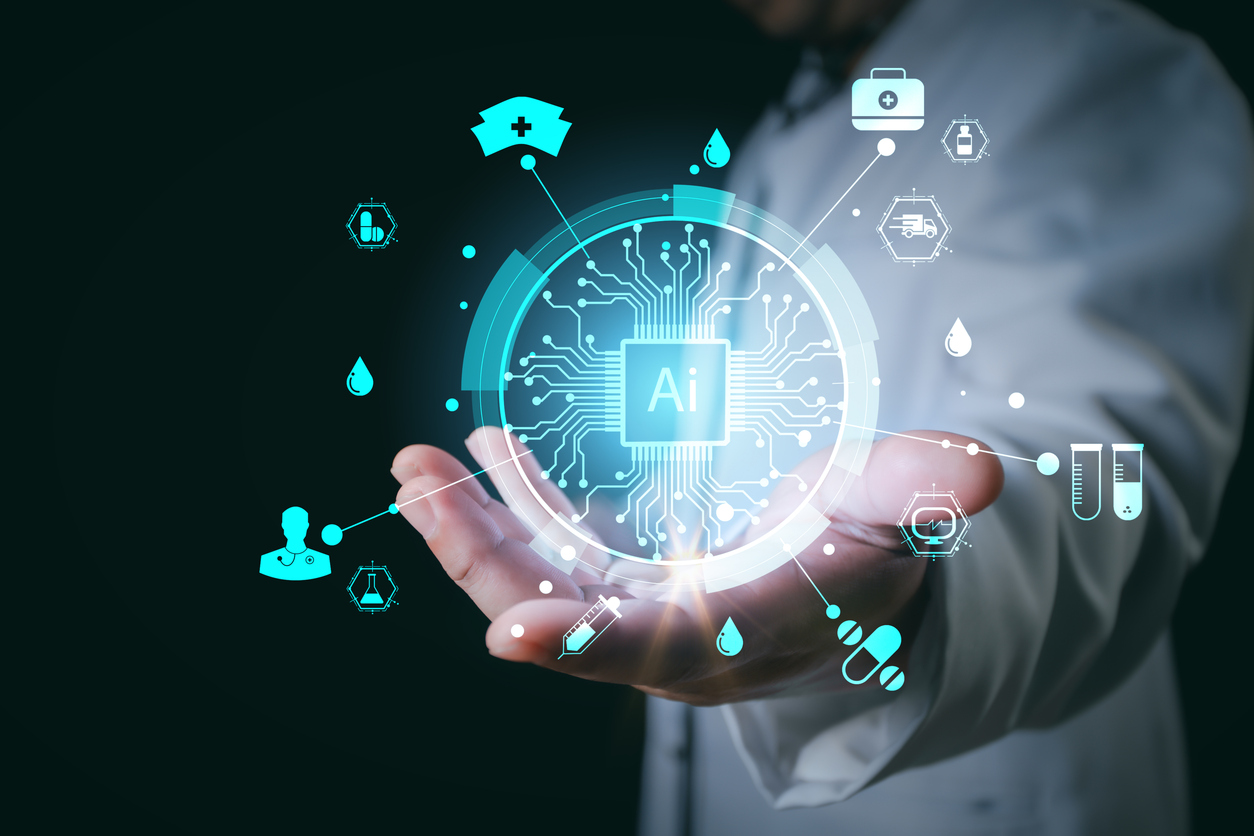The AI market is set to soar, projected to reach a staggering $2,740.46 billion by 2032.
As drones take to the skies for real-time environmental monitoring and machines mimic the human brain with unparalleled precision, the landscape is shifting—free from fatigue and error-prone processes.
In healthcare, AI-powered robots make incisions so small that recovery is a breeze.
AI technologies are everywhere, and here, we’ll spotlight seven key innovations to watch for in 2025-2026 that are both fascinating and transformative.
Key Notes
- AI-powered medical diagnostics and robotic surgery are revolutionizing patient care and treatment outcomes.
- Machine learning systems detect manufacturing defects with greater precision than traditional quality control methods.
- Ethical AI frameworks and regulations are emerging to address bias, transparency, and privacy concerns.
1. Generative AI
Generative AI (Gen AI) is fundamentally changing the way we create content. Unlike traditional AI models that focus on classification or prediction, Gen AI generates entirely new material, whether it's text, images, or even music.
This technology leverages sophisticated techniques like deep learning and neural networks to craft content based on patterns and structures it has learned from extensive datasets.
Key examples of these tools include Large Language Models (LLMs) for text, Generative Adversarial Networks (GANs) for images, and Variational Autoencoders (VAEs) for data generation.
Applications Across Industries:
- Content Creation: Tools like ChatGPT and DALL-E are automating content generation, reducing production time and scaling efforts for businesses.
- Design: Graphic designers are using Gen AI to quickly prototype and explore creative possibilities, speeding up the design process.
- Gaming: AI creates dynamic, personalized gaming experiences by generating environments and storylines tailored to individual players.
- Healthcare: AI is helping to expedite drug discovery by simulating molecular interactions and suggesting new drug candidates.
As this technology continues to advance, its potential to revolutionize various industries remains immense.
2. AI in Healthcare
AI is transforming healthcare by improving diagnostics, personalizing treatment, and enhancing surgical precision.
- AI-Driven Diagnostics: AI tools are becoming faster and more accurate in analyzing medical images such as X-rays and MRIs, allowing for quicker diagnoses and early interventions.
- Personalized Medicine: By analyzing a patient's genetic and medical history, AI helps doctors craft tailored treatment plans that reduce side effects and improve outcomes.
- Robotic Surgery: AI-powered surgical robots assist in performing minimally invasive procedures, reducing recovery times and risks of infection. For instance, robotic kidney surgery at Mount Sinai Hospital has showcased AI’s ability to preserve organ function.
- Virtual Health Assistants: These AI-driven systems provide real-time monitoring for chronic conditions, alerting healthcare providers to necessary interventions before complications arise.
AI’s continued integration into healthcare promises to enhance both the quality and accessibility of care worldwide.
3. Defect Detection Using Machine Learning
Machine learning (ML) is revolutionizing defect detection, addressing the limitations of traditional quality control methods that rely on human inspectors or basic automated systems.
In comparison, defect metrology, which ensures precise measurement of critical dimensions and material properties, often faces challenges such as calibration errors, environmental influences, and probe misalignments.
These flaws can compromise the reliability of measurements, potentially allowing defects to go undetected. ML offers a dynamic solution by continuously learning from data, ensuring that even the most subtle defects are identified with higher precision and efficiency.
Key Advantages of ML in Defect Detection:
- Precision: ML systems can identify even subtle defects, offering much higher accuracy than human inspectors.
- Real-Time Processing: With real-time data analysis, manufacturing processes can be adjusted immediately, reducing waste and ensuring quality.
- Automation: ML reduces the need for manual intervention, cutting labor costs and improving efficiency.
Industries such as aerospace, automotive, and electronics are already benefiting from ML-powered defect detection systems that improve product quality and reduce recalls.
4. AI-Driven Environmental Monitoring
AI is enhancing environmental monitoring by analyzing vast datasets more accurately and efficiently than traditional methods. These technologies are deployed across sensors, drones, and satellites to monitor everything from air quality to wildlife movements.
- Predictive Analytics: AI can predict environmental changes, such as weather patterns or pollution levels, allowing authorities to take preventative actions.
- Wildlife Conservation: AI-powered cameras and drones track animal populations and behaviors, helping to safeguard endangered species.
- IoT Integration: AI integrates with IoT devices to monitor and manage environmental parameters in real-time, offering a comprehensive view of ecological health.
By using AI to forecast potential threats and detect early signs of ecological decline, we’re taking proactive steps toward safeguarding the planet.
5. Artificial Intelligence Data Analytics
Data drives modern business, and AI is unlocking new levels of insight. Traditional data analysis methods are often too slow or lack the sophistication needed to handle today’s vast datasets.
- Informed Decision-Making: AI’s ability to uncover complex patterns within large datasets helps businesses make data-driven decisions.
- Efficiency and Personalization: AI accelerates analysis, enabling personalized offerings that cater to individual preferences and needs.
- Risk Management: AI detects anomalies that could indicate fraud or potential risks, allowing organizations to act before problems escalate.
As more businesses adopt AI-driven data analytics, they’ll gain an edge in an increasingly competitive landscape.
6. Conversational AI and Natural Language Processing (NLP)
Conversational AI, powered by Natural Language Processing (NLP), is changing the way humans interact with machines. Whether through text or voice, AI can now engage in meaningful, human-like dialogue.
Applications Across Industries:
- Customer Service: AI chatbots and virtual assistants handle customer inquiries, reducing response times and improving service availability.
- Healthcare: Virtual assistants provide symptom triage and assist in scheduling, making healthcare more accessible.
- E-commerce: AI streamlines the shopping experience by assisting with product discovery and order management.
By enabling more intuitive interactions, conversational AI enhances both user experiences and business operations.
7. Ethical AI & Regulation
As AI becomes more integrated into our lives, the importance of ethical standards and regulatory frameworks grows. AI systems must be developed with careful consideration of their social, ethical, and environmental implications.
Key Ethical Principles:
- Bias and Fairness: AI must be designed to eliminate biases in its decisions, ensuring fairness for all users.
- Transparency: Understanding how AI systems make decisions is critical to maintaining trust and accountability.
- Data Privacy: Protecting user data is paramount, requiring robust security measures to prevent misuse.
Governments and regulatory bodies are now setting guidelines to ensure AI is deployed responsibly, promoting public trust and mitigating potential harm.
Frequently Asked Questions
In what ways can AI contribute to personalized education?
AI can generate customized learning materials and experiences tailored to individual student needs. By analyzing a student's learning style, progress, and areas of difficulty, AI tools can create personalized quizzes, lesson plans, and study aids to enhance the educational experience.
Why is it important for organizations to integrate AI with IoT devices?
Integrating AI with IoT devices allows for real-time data analysis and monitoring across diverse parameters. This synergy enhances operational efficiency, optimizes resource use, and provides businesses with the ability to respond rapidly to changes and potential issues within their operational environments.
Conclusion
Emerging AI technologies are rapidly infiltrating every facet of our lives, making it increasingly challenging to identify areas where they won't have an impact.
From Generative AI creating unique content to AI-driven environmental monitoring protecting our ecosystems, the scope is immense. In manufacturing, machine learning revolutionizes defect detection, moving beyond traditional methods that rely on human oversight, thereby increasing precision and efficiency.
With the rise of AI in healthcare, education, and data analytics, familiarizing yourself with these advancements will position you favorably for future challenges and opportunities.
Stay ahead of the curve—understanding AI may just be the key to unlocking your next big breakthrough. Don’t let the future catch you off guard.











